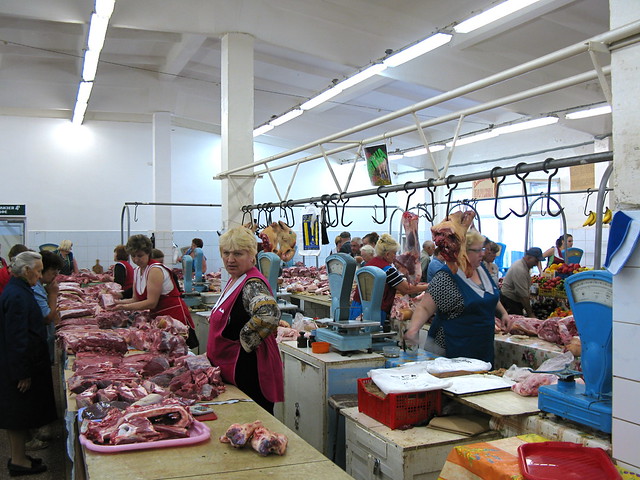During my undergraduate degree in Political Science, I wrote my Bachelor’s Thesis on Russia’s definition of food security and their food policies in general, so I still follow news about that topic with great interest. To summarize my 50-page paper in two sentences, Russia seems to be striving for total food independence (meaning that all food Russians consume is produced in Russia) under the guise of “food security”. However, since they are also a major wheat exporter and want to take advantage of the global market even more, last year they decided to join the WTO – which means that they are prohibited to engage in many of the protectionist practices, setting strict import quotas and high import tariffs for example, which they used before to protect their own agricultural and food processing sector.
However, there is one big exception – countries in the WTO are still allowed to restrict imports based on so-called “sanitary and phytosanitary measures” which are based on public health and food safety standards. Russia has a long history of doing so, including very loosely disguised punishments of states that had recently been in political disagreements with the Kremlin (see, for example, the February 2012 ban of Ukrainian cheese, or the 2006 embargo of Georgian and Moldovan wine, for “sanitary reasons”).

Image by carlfbagge, via Flickr Creative Commons.
Now Russia decided to suspend most U.S. meat exports (beef, turkey and pork) to its country, said to be worth around $500 million, because of the American producers’ use of the animal drug ractopamine in pig, cattle and turkey feed. The additive is supposed to contribute to lean meat growth and less fat in animals.
However, since it is given to them close to slaughter, sometimes traces of it can still be found in the meat, and a fierce scientific battle over ractopamine health impacts on humans has been waged for years – the US Food and Drug Administration (FDA) said it was safe for human consumption in 1999, while the EU and China have banned it. The UN’s highest body for food safety, the Codex Alimentarius Commission, approved ractopamine last summer as safe, but only in a 69 – 67 vote. European scientists especially question U.S. and Codex Alimentarius methodology and data, saying that they weren’t sound and yielded skewed results. Other reports speak of severe adverse effects on animals fed with ractopamine – according to an article on the Food and Environment Reporting Network, “pigs suffered from hyperactivity, trembling, broken limbs, inability to walk and death, according to FDA reports released under a Freedom of Information Act request. The FDA, however, says such data do not establish that the drug caused these effects.“
In consequence, U.S. exporters make sure that the meat they export to the European Union and to China contains no traces of ractopamine, but up to now they have not made similar assurances to Russia, resulting in the near-to-blanket ban that has been enforced as of February 11th due to a lack of compliance to its zero-tolerance policy for ractopamine residues in meat and poultry products.
So did Russia get it right this time? It seems that they are in good company in questioning the use of this particular drug (though other countries, such as Canada or Brazil, have also accepted it), and to have valid reasons in requiring a zero-tolerance policy. On the other hand, it is also a very convenient tool to restrict what is seen as some of the strongest competition to domestic meat production in the wake of WTO accession – the Russian livestock industry is symptomatically weak and strengthening it was one of the main features of Russian “food independence” policy.
0 thoughts on “Russia's Ban on U.S. Meat Exports – Is It Legit?”